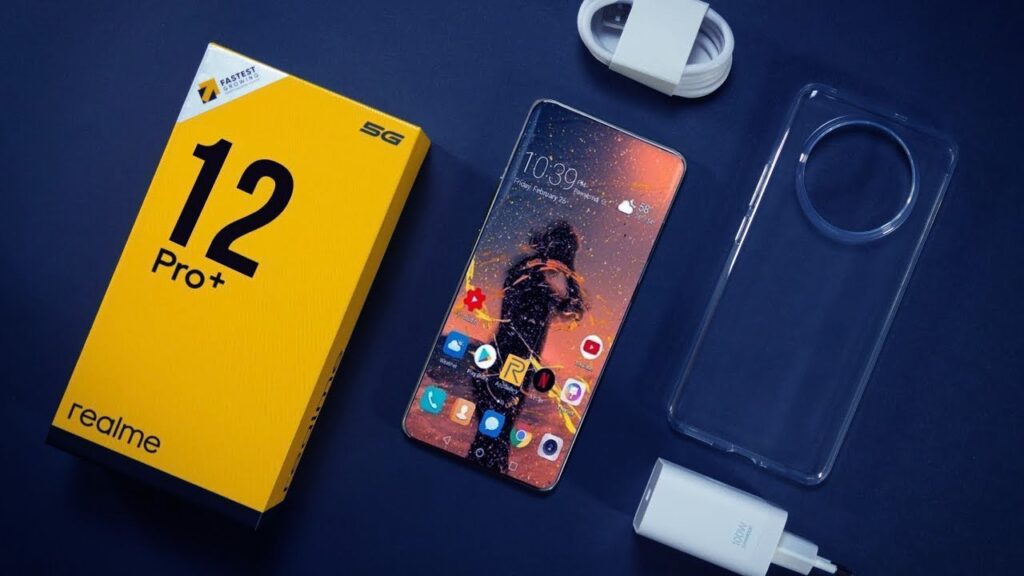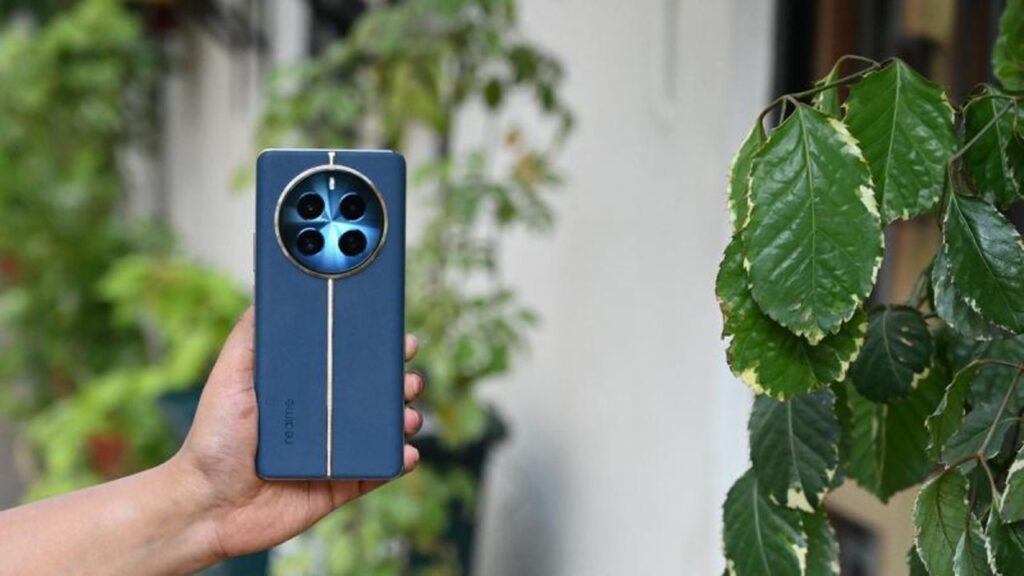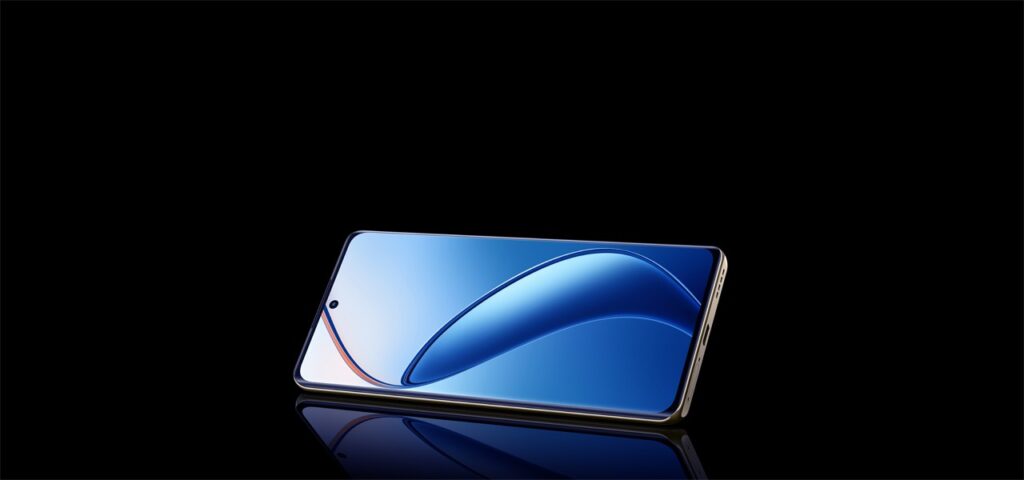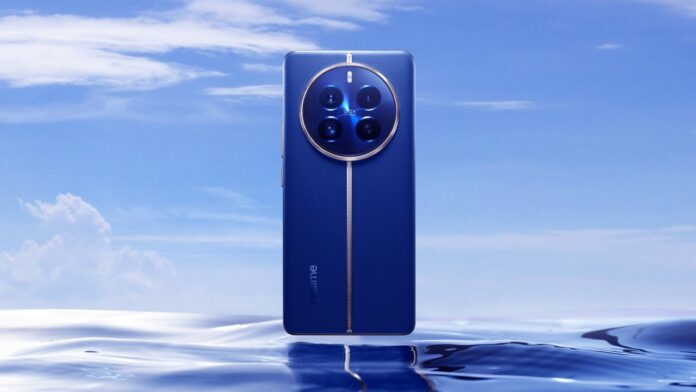The Realme 12 Pro+ is the company’s latest flagship smartphone in the popular Numeric series family. The handset includes several significant modifications across departments, including improved cameras with a periscope telescopic lens. If I am not mistaken, this camera configuration is unusual even inside the sector. The phone appears more expensive than its pricing. In this Realme 12 Pro+ review, I’ll tell you about my experience with the device after more than a week of use.
Smartphone cameras now have a 200-megapixel resolution, an IP68 grade for dust and water protection, and super-fast charging (up to 120W). Surprisingly, there are smartphones in this category that provide just this but fall short of implementation or camera consistency. That’s why these are difficult to suggest. There’s also the possibility that customers will come across premium smartphones that offer equally amazing value but have lately gotten price decreases, such as Google’s excellent Pixel 7a.
Price when reviewed: Check price at Amazon
Realme 12 Pro+ KEY FEATURES
The new Realme features a genuine telephoto camera, specifically a periscope lens with 3x zoom. This is a very rare feature at this pricing point. In terms of pricing, the launch price has been increased by INR 2,000, however, it is unclear whether the European price will be adjusted.
Realme may have had to compromise on the main camera to accommodate the more expensive 64MP periscope telephoto camera. The main 200MP shooter is replaced by a 50MP one with a slightly smaller sensor. The third auxiliary 8MP ultrawide camera remains. The upgraded device now includes a more powerful Snapdragon 7s Gen 2 chipset built on a more current 4nm manufacturing process.
There have been no adjustments to the display, which we didn’t expect. The curved 120Hz OLED panel from last year is still suitable for 2024. Maybe the maximum brightness falls short of competitors’ solutions, but it’s still adequate for comfortable outdoor use. The tablet retains its sleek look with vegan leather and the 5,000 mAh battery, but it now charges with a 67-watt brick, down from 100W last year.
Realme appears to have made a few compromises to accommodate some of the new capabilities, such as the periscope telescopic camera. We go deeper into the following pages to examine whether any additional significant changes are difficult to detect from the specs sheet alone.
Pros
- Striking design
- Innovative camera setup
- Vibrant screen
Cons
- Performance could have been better
- Portraits can be hit-and-miss
REALME 12 PRO+ UNBOXING
The Realme 12 Pro plus ships in a regular retail package with the usual user instructions, a 67W charger, and a USB-A to USB-C connection for charging and data transfer.

There is also a clear silicone case that does not hide the unusual design.
CAMERA
Let’s talk about the cameras, which are the main selling point of this smartphone. The Realme 12 Pro+ features a triple rear camera array consisting of a 50MP Sony IMX890 primary sensor, an 8MP ultra-wide sensor, and a 64MP OV64B periscope telephoto lens with 3x optical zoom. While the handset claims to have up to 120x magnification, it appears fairly gimmicky, as photographs beyond 6x zoom degrade in both quality and detail.
The 3x zoom yields the best results. It has a focal length of 71mm and produces photographs with an excellent dynamic range and uniform colors, similar to those obtained by the primary camera, at least in daylight circumstances. The details around the shadowy area are still minimal, but that’s OK. The lens employs an in-sensor zoom to produce 6x images that appear usable, albeit with some distortion. The 8MP ultrawide lens performs admirably in bright lighting conditions. The acquired photographs are sharp, especially in the center of the frame, and the colors are bright. However, in low light, the sensor may struggle, as with every mid-ranger equipped with an 8MP ultra-wide sensor.

In comparison, the 50MP main sensor outperforms its contemporaries in both daylight and low-light conditions. The colors are somewhat oversaturated, but the intricacies and sharpness are pretty outstanding. The sensor also illuminates the image properly, capturing details even in dim areas. In addition, the sensor captures human skin tones consistently in both Photo and Portrait modes. However, it’s worth mentioning that the phone’s portrait mode is inconsistent, occasionally blurring sections of the subject’s face.
The business has added a bespoke tilt OIS to the camera, which improves low-light photography by decreasing light flare and ensuring steadiness. Additionally, the phone has a night mode to deal with the noise that comes in after the sun goes down. It smoothes out the details, but the outcome is much cleaner. Although there is no special macro mode on the smartphone, you can use the telephoto lens to capture close-up photographs of the subject. The phone’s camera software also includes a Street mode, which allows you to experiment with focus lengths ranging from 16mm to 71mm for street photography. There’s also the Starry mode, which is useful for astrophotography and other purposes.
For selfies and video calls, the handset uses a 32MP Sony camera with superb skin tones and mild facial smoothing. While the cameras’ general performance is adequate, I did encounter a few difficulties. The optics occasionally struggle to focus on the target, and there is a slight delay in image processing. However, these concerns do not appear to be serious and may be readily resolved with software upgrades, assuming Realme decides to carry them out.
DESIGN AND SCREEN
The Realme 12 Pro+ maintains the trend of vegan leather and premium watch design that started last year with the Realme 11 Pro series. Nonetheless, the phone has undergone small improvements such as a new color, a revamped camera module, contrasting edges, and more, which improve its luxury appearance and aesthetic appeal. The design is so stunning that finding a case to match its attraction may prove difficult. Nonetheless, the firm supplies a clear case with the gadget, but it does not mimic the same in-hand sensation as without it.
The handset has a textured rear with a vertical seam in the middle, providing a tactile sense. The phone is very lightweight, weighing only 196 grams, making it suitable for long-term use. The business has also prioritized practicality this time, making the phone reasonably easy to clean, with low surface tension and hydrophobic qualities capable of removing 30 different sorts of stains. I received the Submarine Blue color option for review, which did excellent at hiding stains.

While the spherical camera module protrudes significantly on this smartphone, the surrounding dial demonstrates appreciation for the design decisions. Furthermore, because to the module’s rounded design, the handset does not wobble when texting and rests flat on a table. The rest of the device’s characteristics are very standard. Curved corners provide you a good grip on the smartphone, and a USB Type-C connection on the bottom edge allows you to charge and transmit data. The volume rocker and power button are located on the right spine of the phone, conveniently placed where your thumb would naturally rest while holding the device. For security, the Realme 12 Pro+ includes an in-display fingerprint reader that unlocks the tablet quickly.
The Realme 12 Pro+ has a curved 6.7-inch AMOLED display with a central punch-hole, FHD+ resolution, 120Hz refresh rate, and a maximum brightness of 950 nits. These are the same display parameters as its predecessor, and aside from peak brightness, everything else is comparable to its competitors in the segment. Despite its low peak brightness, the content is appealing to the eye both indoors and out. This could be attributable to the smartphone’s vibrant colours and great viewing angles. The display has been optimized with Pro-XDR to boost visibility and highlight finer details in HDR images in a variety of lighting settings. The Realme 12 Pro+ also features 2,160Hz PWM dimming, which reduces flickering and eye strain.
Aside from that, the smartphone supports HDR10, however, it can only stream FHD video from streaming services like Netflix and YouTube. Regardless, the phone features Hi-Res dual speakers that have been fine-tuned by Dolby Atmos to provide an immersive listening and watching experience.
HOW’S THE PERFORMANCE?
The Snapdragon 7s Gen 2 chipset takes care of the performance. This is a relatively toned-down version of the Snapdragon 7 Gen 2, which debuted last year on the POCO F5. The Realme 12 Pro+ operates wonderfully, with no app crashes or uncomfortable freezes observed in normal use. The handset can also perform intensive tasks such as multitasking and gaming, though not with the same delicacy as some of its competitors. The Realme 12 Pro+ is aimed at casual users who do not engage in extensive gaming activities.
The handset comes in three RAM and storage configurations: 8GB + 128GB, 8GB + 256GB, and 12GB + 256GB. While the RAM in all three models may be upgraded virtually up to 12GB, the storage is fixed. There is no way to expand it via a microSD card slot.
In terms of software, the Realme 12 Pro+ comes pre-installed with Realme UI 5.0 over Android 14. The new UI is less cluttered and more user-friendly. There are fewer pre-installed apps than in last year’s Realme 11 Pro+ (review). Furthermore, the majority of these programs can be uninstalled if they are no longer needed. The business has also banned hot and recommended apps by default. However, if necessary, they can be enabled from the settings menu.
Buy it if...
- Standout design with IP65 ingress protection.
- Longest battery life in its class.
- Versatile camera hardware, excellent 3x telephoto camera.
Don't buy it if…
- There are higher-quality main cameras available.
- Competition has better displays and occasionally quicker SoCs.
- Last year’s model featured faster charging.
- There is no EIS at 4K video recording.
FULL SPECIFICATION
Network | Technology | GSM / HSPA / LTE / 5G |
Launch | Announced | 2024, January 29 |
Status | Available. Released 2024, January 29 | |
Body | Dimensions | 161.5 x 74 x 8.8 mm (6.36 x 2.91 x 0.35 in) |
Weight | 196 g (6.91 oz) | |
SIM | Dual SIM (Nano-SIM, dual stand-by) | |
IP65 dust/water resistant | ||
Display | Type | AMOLED, 1B colors, 120Hz, 800 nits (HBM), 950 nits (peak) |
Size | 6.7 inches, 108.0 cm2 (~90.4% screen-to-body ratio) | |
Resolution | 1080 x 2412 pixels, 20:9 ratio (~394 ppi density) | |
Platform | OS | Android 14, Realme UI 5.0 |
Chipset | Qualcomm SM7435-AB Snapdragon 7s Gen 2 (4 nm) | |
CPU | Octa-core (4×2.40 GHz Cortex-A78 & 4×1.95 GHz Cortex-A55) | |
GPU | Adreno 710 | |
Memory | Card slot | No |
Internal | 128GB 8GB RAM, 256GB 8GB RAM, 256GB 12GB RAM, 512GB 12GB RAM | |
Main Camera | Triple | 50 MP, f/1.8, 24mm (wide), 1/1.56″, 1.0µm, multi-directional PDAF, OIS 64 MP, f/2.8, 71mm, (periscope telephoto), 1/2.0″, 0.7µm, PDAF, OIS, 3x optical zoom 8 MP, f/2.2, 16mm, 112˚ (ultrawide), 1/4.0″, 1.12µm |
Features | LED flash, HDR, panorama | |
Video | 4K@30fps, 1080p@30/60/120fps, gyro-EIS | |
Selfie camera | Single | 32 MP, f/2.4, 22mm (wide) |
Video | 1080p@30fps | |
Sound | Loudspeaker | Yes, with stereo speakers |
3.5mm jack | No | |
24-bit/192kHz Hi-Res audio | ||
Comms | WLAN | Wi-Fi 802.11 a/b/g/n/ac/6, dual-band |
Bluetooth | 5.2, A2DP, LE | |
Positioning | GPS, GLONASS, GALILEO, BDS, QZSS | |
NFC | Yes (market/region dependent) | |
Radio | No | |
USB | USB Type-C 2.0 | |
Features | Sensors | Fingerprint (under display, optical), accelerometer, gyro, proximity, compass |
Battery | Type | 5000 mAh, non-removable |
Charging | 67W wired, 1-50% in 19 min (advertised) | |
Misc | Colors | Submarine Blue, Navigator Beige, Explorer Red |
Models | RMX3840 |


